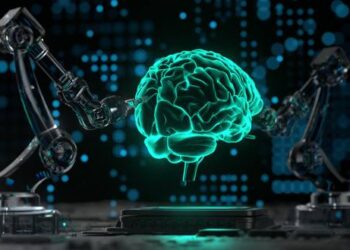Founder of STEM-A-School and Product Hub Africa (PHA), Victoria Oladosu, has emphasized the urgent need for Nigeria to accelerate tech skill development in response to the global rise of artificial intelligence (AI).
This, she said, will be crucial to realizing the expectation of AI boosting the country’s GDP.
A recent Public First report on Nigeria’s AI potential estimates that AI could add $15 billion to the country’s GDP by 2030.
Speaking at the 2025 STEM Conference held at Nile University, Abuja, Oladosu said Africa’s competitiveness in the emerging AI-driven economy hinges on how quickly it can equip its young population with core STEM (Science, Technology, Engineering, and Mathematics) capabilities.
“STEM is the difference between where we are in Africa and where we want to be. “We still need lawyers and doctors, but more young people must explore core STEM paths if Nigeria won’t be left behind in the global AI race,” she stated.
Connecting students with emerging technologies
The conference, which brought together robotics, aerospace, and AI experts, aimed to connect students with the frontier of emerging technologies and inspire a new generation of innovators.
- Oladosu said her startup is focused on nurturing tech talent from an early age, particularly through the STEM-A-School initiative, which has reached both tertiary and pre-tertiary institutions across the country.
- So far, the initiative has upskilled over 3,000 students in critical STEM disciplines, a move Oladosu sees as foundational to national economic progress.
- Oladosu believes the first step in achieving the country’s goals in AI lies in education.
“We have so many unskilled young people in Nigeria, and getting them into STEM should be a priority,” she said.
AI and economy
Echoing this sentiment, Dean of the Faculty of Computing at Nile University, Dr. Joshua Abah, highlighted AI’s potential to drive economic efficiency.
“What AI does is improve productivity and efficiency,” he explained, calling for stronger academic-industry collaboration to boost innovation.
The conference also featured calls for Nigeria to take a leadership role in Africa’s transition into the Fourth Industrial Revolution, leveraging its large and youthful population to drive innovation across sectors.
What you should know
Nigeria’s demographic advantage, with its median age at 18, has been cited as a potential catalyst for AI adoption.
Minister of Communications, Innovation, and Digital Economy, Bosun Tijani, has also stressed the importance of investing in this population.
- Under the country’s draft National AI Strategy, Nigeria plans to equip 70% of its youth aged 16 to 35 with AI-relevant skills, aiming to reduce unemployment by five percentage points.
- As of Q3 2023, Nigeria’s unemployment rate stood at 5%, according to the National Bureau of Statistics, with just 7.7% of jobs coming from the formal sector.
- The strategy document notes that building a highly skilled AI workforce is essential to ensuring meaningful job creation and sustaining long-term economic growth.

















